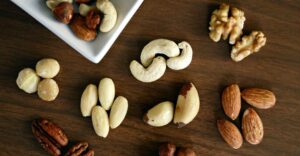Like any other condition, inflammation has pros and cons, though it is usually considered manageable. Although it is the condition in which your body shields and repairs after being sick or affected by an ailment, inflammation may progress and transform into a more severe and chronic disease.
Inflammation may also lead to numerous illnesses, such as heart disease, arthritis, and several forms of cancer. To reduce the risks of inflammation, let’s explore five strategies for regaining health.
1. Change Your Diet
There are foods that may lead to fluctuations in inflammation, but there are also foods rich in antioxidants, nutrients, and omega-3 fatty acids. Due to their characteristics as inflammation reducers, fruits and vegetables, nuts, and fatty fish should be consumed frequently.
Antioxidants neutralize free radicals, and you can get them through food products such as blueberries and strawberries. Tree nuts such as almonds and walnuts contain liberal amounts of healthy fats that do not encourage inflammation. Direct consumption of salmon and sardines, which are a source of omega-3 fatty acids, decreases the levels of inflammation protein.
Additionally, consider using a quality red beet powder supplement. Beets can provide your body with needed nitrates and include many products that can produce positive effects in the case of inflammation. You can incorporate these supplements into your daily diet by adding smoothies, juices, and even plain water to help prepare your anti-inflammatory diet.
2. Stay Physically Active
Daily and frequent physical exercise could help minimize inflammation and enhance health. Thirty minutes of moderate exercise should be performed at least six days a week, as movement can impact the concentration of anti-inflammatory compounds in the body. This can include simple exercises like walking, cycling, swimming, or any other exercise, including yoga. Besides reducing inflammation, exercise equals better mood, deeper sleep, and a better heart.
Creating a routine can be challenging, so it’s important to choose activities you are interested in or exercise with friends to stay motivated. Do fitness exercises that strengthen and stretch the muscles to enhance joint flexibility.
The activities do not have to be extremely taxing as long as you do them regularly. Remember that small but constant efforts pay off cumulatively.
3. Get Enough Sleep
Sleep is an excellent weapon for fighting inflammation and staying healthy. As with other vital functions, sleep allows the body to perform invaluable healing and repairing work, thus controlling inflammation. On the other hand, chronic sleep loss tends to increase inflammatory markers. A person’s recommended amount of uninterrupted sleep daily is seven to nine hours.
Use earplugs to reduce noise levels. Turn off all the lights in the bedroom and use a fan or air conditioning if necessary to avoid light and heat. Lessen your consumption of coffee and large meals close to bedtime. Pass up on rigid activities before going to bed and instead engage in light or relaxing activities like reading or listening to soft music.
Good sleep is crucial because it can significantly reduce the risk of inflammation and the development of various health issues.
4. Manage Stress Levels
Long-term stress can exert a vast and frequent impact on inflammation. With stress, your body formulates cortisol, a hormone that, in high concentration, causes inflammation. Coping mechanisms for stress are helpful concepts that simplify your life and aim to lower inflammation levels. Meditation, deep breaths, and the practice of yoga bring down the pressure.
Apart from the fact that these activities help to calm the mind, they also help to relax the body, lowering cortisol levels. When incorporated into daily practice, these relaxation techniques will not only assist in reducing inflammation levels but will consequently promote healthy living. If these habits are incorporated into your life, it will help you cultivate specific emotional protection that will have a great bearing on your well-being and health.
5. Consider Supplements for Inflammation
Sometimes, diet and lifestyle changes alone may not effectively combat inflammation. Additional nutrients such as omega-3 fatty acids in fish oil, turmeric, probiotics, and red beet powder have anti-inflammatory effects and can enhance health. Seek your doctor’s opinion before taking any new supplement. Introducing supplements into your diet is straightforward if you want to achieve your body’s maximum potential to minimize inflammation and improve health. Supplements can also boost your immune system and improve your body’s response to illnesses.
Conclusion
This opportunity to take control of one’s health and fight inflammation through lifestyle adjustments such as dietary modifications, exercise, stress reduction, and adequate sleep is practical and empowering. People should adopt the habit of making tiny alterations in their lifestyle, which will, in the long run, translate to numerous healthy changes. Whether using a red beet powder supplement or taking a brisk walk daily, each step to reduce inflammation is a step towards a healthier, happier you!








